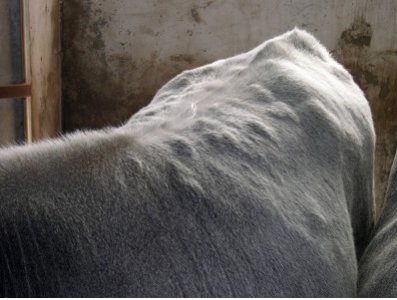Zsk7687
Member
A few weeks ago I noticed one of my heifers had started to lose some noticeable weight, but still had a healthy appetite, stayed with the herd and would come to feed. Weight loss worsened and had very loose stool, so last week I treated with Corid for coccidiosis - all of my reading and research (started with cattle back in Feb) kept leading me to issues with calves and Johne's or coccidiosis. I ruled out Johne's, and had a vet come out last Tuesday and she noticed a lump under her jaw (brisket was fine) and determined it was worms. Vet gave her an injection, but since the injection she hasn't been able to stand on her on, and appetite has severely decreased. A local farm that does rescues loaned us a sling to get her up, and came out to show us how to exercise her and try to keep her somewhat active a few times a day, but she's showing little to no progress with standing on her own - much less walking. We have been slowly toting her along in the sling with the tractor with a crew moving her feet by hand to simulate walking. Could there be another/underlying issue causing this to go so poorly and so quickly? The rest of the heard (nine head) is doing fine, with no weight loss, but They were treated with Cydectin on Saturday per the vet's suggestion. I'm definitely taking this personally, because it's due to my lack of observation and/or ignorance as a rookie.
TL;DR - quick weight loss in heifer, even with normal appetite and feeding. Vet gave injectable wormer, been down since the following day (5 days now). No progress in strength, and appetite is all but gone.
TL;DR - quick weight loss in heifer, even with normal appetite and feeding. Vet gave injectable wormer, been down since the following day (5 days now). No progress in strength, and appetite is all but gone.

